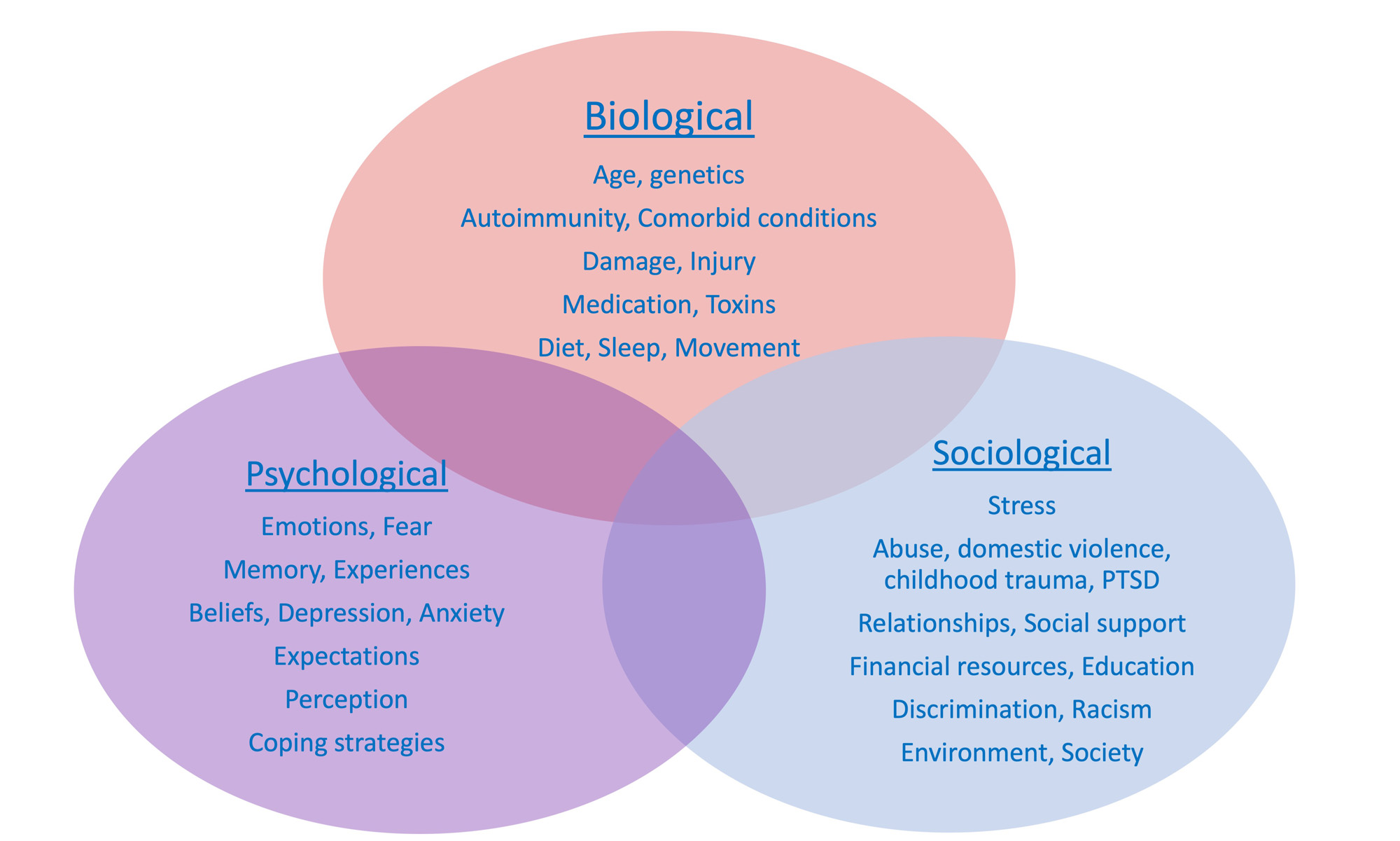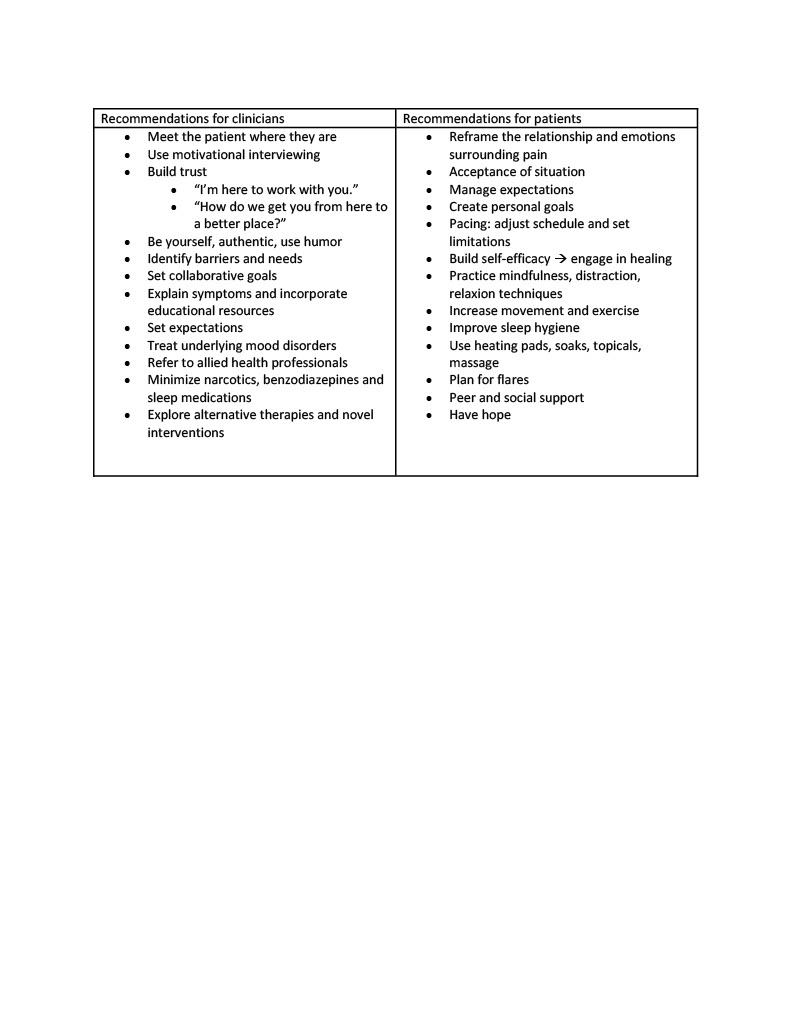Session Information
Date: Tuesday, November 14, 2023
Title: (1827–1839) Fibromyalgia & Other Clinical Pain Syndromes Poster
Session Type: Poster Session C
Session Time: 9:00AM-11:00AM
Background/Purpose: Patients with SLE experience distressing fibromyalgia-like symptoms of fatigue, widespread pain, mood disturbance, and brain fog that negatively impact quality of life and are challenging to manage. These symptoms, termed Type 2 SLE, can be related to inflammatory and non-inflammatory etiologies. Studies of fibromyalgia suggest that addressing biopsychosocial factors can improve quality of life. A Type 2 SLE Consortium was created to bring together a multidisciplinary team of patients and clinicians to develop equitable, feasible, and potentially effective approaches to care for people living with Type 2 SLE.
Methods: The Type 2 SLE Consortium included patients meeting ACR/SLICC SLE classification criteria and clinicians who treat chronic pain, insomnia, and mood disorders. The consortium met in 3 group sessions; additionally, each consortium member was invited to complete an individual interview. The sessions were conducted virtually between August 2022-April 2023 and auto-recorded and then transcribed.
Early sessions included a review of the Type 1 & 2 SLE Model, followed by suggestions from Consortium members about the possible etiology, contributing factors, and treatment approaches for fibromyalgia-like symptoms in people with SLE. Rapid qualitative evaluation identified key themes.
Results: The Type 2 SLE Consortium included 2 women with SLE (both Black with SLE duration >15 years) and 18 health professionals (67% female, 89% academic). Expertise was gathered from adult and pediatric rheumatology, integrative medicine, neurology, psychiatry, psychology, palliative care, neuropsychology, medical weight management, sleep, pain, and stress management. The majority (83%) attended at least 1 group meeting and all but 1 member completed the individual session.
The Consortium identified a range of biopsychosocial factors that can predispose, precipitate, and perpetuate Type 2 symptoms such as fear, stress, and trauma (Figure 1).Two main categories of approaches to care were identified: one for providers and the other for patients (Table 2). Key themes consisted of building better therapeutic relationships, adjusting expectations, improving symptom understanding, lifestyle interventions, and multidisciplinary collaboration. Specific guidance for clinicians included active listening, validating symptoms, and using motivational interviewing. Patients with SLE would benefit from setting personal goals, building self-efficacy, pacing, identifying personal factors, and reframing their relationship with symptoms.
Conclusion: Key recommendations from this multi-disciplinary consortium were to individualize treatment based on the biopsychosocial underpinnings driving the symptom burden. The importance of communication, trust, education, and multidisciplinary collaboration was emphasized. Rheumatologists cannot be the sole providers to improve Type 2 SLE symptoms but can encourage patients to partner with others who can provide the necessary care. Our future studies will continue to develop and evaluate holistic approaches to SLE care.
To cite this abstract in AMA style:
Rogers J, Clowse M, Eudy A. Embracing a Biopsychosocial Approach to Fibromyalgia-like Symptoms in People with SLE: Insights from the Type 2 SLE Consortium [abstract]. Arthritis Rheumatol. 2023; 75 (suppl 9). https://acrabstracts.org/abstract/embracing-a-biopsychosocial-approach-to-fibromyalgia-like-symptoms-in-people-with-sle-insights-from-the-type-2-sle-consortium/. Accessed .« Back to ACR Convergence 2023
ACR Meeting Abstracts - https://acrabstracts.org/abstract/embracing-a-biopsychosocial-approach-to-fibromyalgia-like-symptoms-in-people-with-sle-insights-from-the-type-2-sle-consortium/


